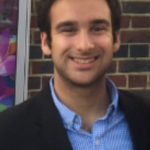Wilson Center’s Fall Students Bring Excitement, Passion for Criminal Justice Work
More than 40 students worked with the Wilson Center during the fall semester, with many continuing on with their projects this spring.
The Duke University undergraduates, law students, and graduate students worked across more than 10 projects, bringing their excitement and passion for criminal justice research in their work, according to Research Director Dr. William Crozier.
"Despite the unique challenges of this semester, the Center's research portfolio continued to grow – in large part due to the hard work of our student research assistants,” he said. “We're thrilled to have such amazing students work with us and enjoy providing opportunities for them to learn empirical research skills, legal research skills, and writing skills.
“In addition to their hard work, their unique perspectives and experiences improve the quality of our work."
Center Director Brandon Garrett said they have never had so many diverse students working on so many different types of projects.
“Their energy is inspiring, and it has led to some very impactful results, whether in studying the progress of bail reform, assessing the state of eyewitness research, tracking police reform legislation, or examining how prosecutors enter plea bargains in practice,” he added.
Some of the students wrote about their experience:

Linda Wang, 2L at Duke Law:
“This semester I worked on the prosecutorial misconduct registry at the Wilson Center for Science and Justice, which involved reviewing federal appellate criminal cases for instances where the prosecution withheld exculpatory evidence from the defense. It was eye opening to see how often the defense learned of the withheld evidence by mere chance or learned of it several years later. That highlighted, to me, the lack of systemic safeguards for prosecutorial ethics in our criminal justice system.”
Emma Balsam, Duke University undergraduate:

“This semester I worked under the supervision of Travis Seale-Carlisle at the Wilson Center for Science and Justice, where I coded patterns in data on the accuracies and inaccuracies of language used by eyewitnesses. I loved learning about which words eyewitnesses used the most when they were incorrect about an identification and vice versa. Though eyewitness identification is often hailed as being an inaccurate method of determining suspects and perpetrators, I found this to be a myth due to the copious data depicting correct identifications based on certain words and phrases. I hope that the work I did improves the legitimacies of current eyewitness identifications in the criminal justice field. With that, we can bring more criminals to justice and prevent wrongful convictions from happening to innocent people.”

Brendan Clemente, 2L at Duke Law:
“This semester I worked on compiling descriptions of recent state and local police reform bills and eyewitness identification research at the Wilson Center for Science and Justice. This involved conducting legislative research along with psychological research into the relationship between eyewitness statements of confidents and identification accuracy. I really enjoyed seeing the trends in police reform that are emerging across the country, along with using scientific reasoning to consider the utility of eyewitness testimony. I hope that our work can provide useful data for policymakers as they think through reforms of our criminal justice system.”

Quinn Beckham, junior at Trinity College of Arts & Sciences:
"This semester and last semester, I worked on gathering information about Failure To Appears in North Carolina at the Wilson Center for Science and Justice. This project has involved calling all the county courts in North Carolina to find out different mechanisms to remedy a Failure To Appear, and now we are working on coding that data into a full report. This work has been challenging because it's difficult to find a lot of this information, especially in certain counties, but it has also been extremely rewarding. We hope to establish a report that will shed some light on the difficulties of the Failure To Appear process, whether it be gathering information about what exactly it is or how to get an FTA taken off your record."
